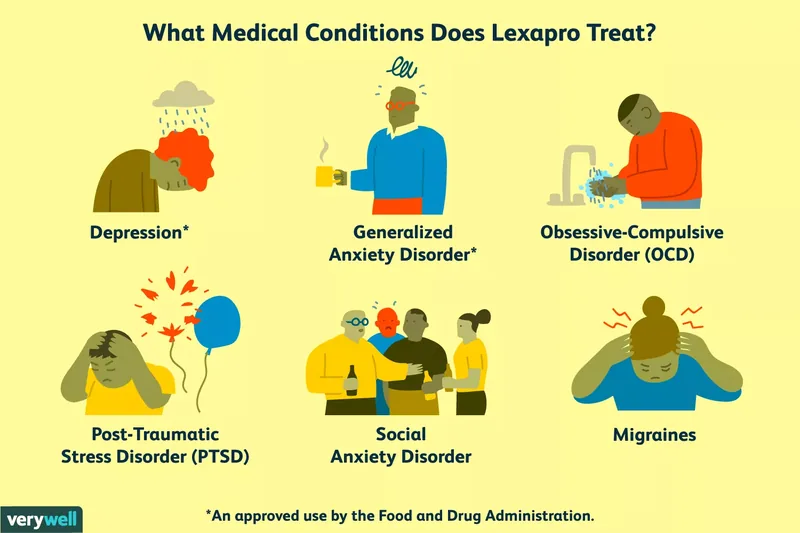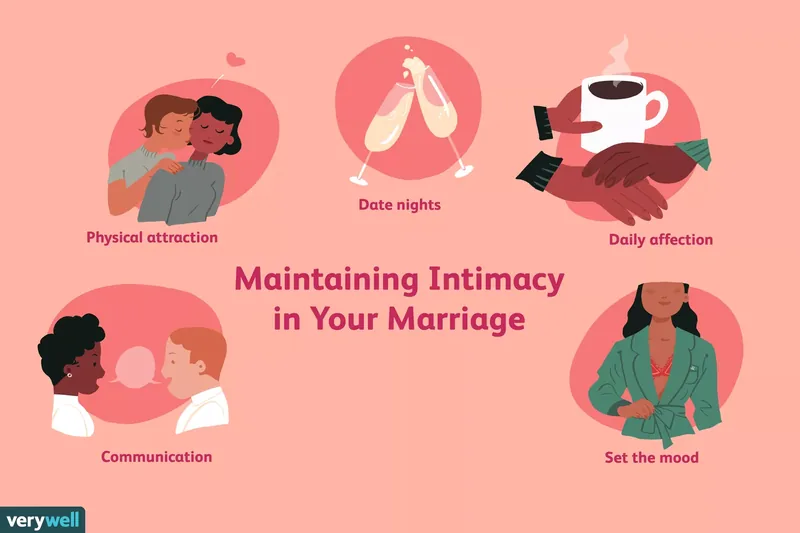The Complete Guide to Stop Needing Attention
Feeling like you need constant validation is exhausting—and it silently drives drama, burnout, and unstable relationships. You can stop needing attention without becoming cold or disconnected.
In simple terms, to stop needing attention you must (1) notice your patterns, (2) build internal self-worth, (3) meet your emotional needs in healthier ways, and (4) reset how you relate to others. The steps below walk you through that process.
Why This Matters
If your mood, confidence, or decisions rise and fall based on who notices you, you’re outsourcing your power.
Over time, attention-dependence can:
- Damage close relationships
- Fuel anxiety, overthinking, and emotional swings
- Keep you performing instead of living authentically
Key insight: People who feel secure don’t stop enjoying attention; they stop depending on it.
This guide shows you how to shift from craving approval to creating grounded, self-led confidence.
What Needing Attention Really Means
Needing attention isn’t about liking compliments. It’s when your sense of worth depends on continuous reactions from others—messages, likes, praise, reassurance, drama, or being the center of every room.
Quick definition (for featured snippets)
To stop needing attention, you must learn to regulate your emotions internally, build self-esteem from your values and actions, and form relationships where you feel seen without demanding constant reassurance. This involves self-awareness, boundaries, therapy or coaching if needed, and consistent, small behavior shifts.
Common Signs You Rely on External Validation
Not all attention-seeking looks loud or obvious. Some of it is subtle and socially acceptable. If several of these feel familiar, treat them as data—not shame.
1. Performing Helplessness
You present yourself as unable to cope so others will rescue you, even when you’re capable.
- Frequently asking for help with tasks you know how to do
- Acting confused or overwhelmed to get support or care
Why it matters: This trains your brain to believe you can’t cope alone and keeps you dependent.
2. Creating or Amplifying Conflict
You stir arguments, debates, or dramatic exits—online or offline—because crisis guarantees attention.
- Turning minor misunderstandings into big confrontations
- Feeling oddly "alive" only when there is tension
3. Fishing for Excessive Sympathy
Normal support is healthy. The red flag is intensifying stories or emotions to secure ongoing comfort.
New examples:
- Posting vague, alarming social media updates like "You wouldn’t understand" to draw concern
- Exaggerating work stress so colleagues constantly check in on you
4. Compulsive Compliment-Seeking
Needing to be told you’re attractive, smart, special, or stronger than others—repeatedly.
Common patterns:
- Asking, "Are you sure this looks okay?" over and over
- Feeling rejected if people don’t praise every achievement
5. Lying or Embellishing for Impact
You add dramatic details or invent scenarios to get reactions.
- Upgrading a minor inconvenience into a "disaster"
- Name-dropping, overclaiming success, or romanticizing hardship
6. Digital Attention Dependency
Especially relevant in 2025:
- Deleting posts that don’t get enough likes
- Checking views or messages obsessively and feeling low when engagement dips
If your emotional state is ruled by how seen you feel, your nervous system is wired to seek safety through attention. That wiring can be updated.
Root Causes: Why You Crave Constant Attention
Attention-seeking is usually a strategy for safety, not a character flaw. Understanding the "why" makes change possible.
1. Insecurity and Low Self-Esteem
When you don’t trust your own worth, you outsource it.
Studies in 2023–2024 (Harvard, 2024) continue to show that low self-esteem predicts indirect support-seeking and relational strain. Attention becomes proof you’re "enough," so your brain chases it.
2. Early Attachment Wounds
Growing up with inconsistent, critical, or distracted caregivers can teach you:
- "I get noticed only when I’m in crisis or exceptional."
- "If I’m quiet, I disappear."
As an adult, this can translate into over-sharing, dramatizing, or clinging to being special.
3. Personality and Mental Health Factors
Certain conditions may make attention-seeking more likely:
- Borderline or histrionic personality traits: Intense emotions + fear of abandonment
- Narcissistic traits: Needing admiration to stabilize self-image
- ADHD, anxiety, bipolar spectrum: Impulsivity or mood swings amplifying attention-grabbing behaviors
Stanford researchers highlight that emotional dysregulation and rejection sensitivity can push people toward high-visibility or high-drama behavior as a quick (but unstable) regulation tool.
Note: Not everyone who seeks attention has a disorder, and not everyone with a diagnosis seeks attention. Use this as context, not a label.
4. Social Media & 24/7 Comparison Culture
Modern platforms reward extremes: hot takes, curated suffering, curated perfection.
This constant scoreboard can blur the line between healthy sharing and performing your life for validation.
How to Stop Needing Attention: Step-by-Step
This is your practical blueprint. Move through these steps steadily; you don’t need to master them overnight.
Step 1: Notice Your Triggers and Patterns
Goal: Build awareness without attacking yourself.
How:
- For one week, note when you feel an urge to post, vent, boast, or dramatize.
- Write down: What just happened? What am I hoping to get? (comfort, praise, rescue, revenge, proof I matter?)
- Look for patterns: certain people, times of day, or emotions.
Why it works: You can’t stop needing attention if you don’t see the specific moments you reach for it.
Pro tips:
- Use a simple 3-column journal: "Trigger / Behavior / What I Actually Needed."
- Be descriptive, not judgmental.
Step 2: Build Internal Safety (Regulate Before You Reach Out)
When your nervous system is overloaded, attention feels like medicine.
How: Before seeking a reaction, try a 2-minute reset:
- 10 slow breaths, exhaling longer than you inhale
- Drop your shoulders, unclench your jaw, feel your feet on the floor
- Name 3 things you can see, 3 you can hear, 3 you can feel
Why: Calming your body first reduces impulsive attention grabs and helps you choose a healthier response.
Micro-practice: "Pause–Breathe–Choose." Even 20 seconds between urge and action rewires the habit loop.
Step 3: Strengthen Real Self-Esteem (Not Performed Confidence)
Healthy self-esteem is built from alignment: your values, your actions, your self-respect.
How:
- Define 3–5 core values (e.g., honesty, growth, kindness, discipline).
- Do one small action daily that matches them (message a friend back, finish a task, tell the truth even if it’s less impressive).
- Use grounded affirmations: "I am building reliability," "I can handle feeling unseen for a moment."
Why: When your self-worth is tied to behavior you control, you stop needing attention as proof you matter.
Step 4: Replace Attention-Seeking With Direct Communication
Often attention-chasing is an indirect way of saying: "I’m hurt," "I’m scared," "I feel invisible."
How: Practice clear asks instead of dramatized bids.
- Instead of vague posts: "Rough day, please send support."
- Instead of sulking: "I felt left out earlier; can we talk about it?"
- Instead of exaggeration: "I’m overwhelmed and could use help with this one task."
Why: Direct communication builds respect and deeper connection, not just momentary focus.
Step 5: Edit Your Digital Environment
Your feeds train your brain.
How:
- Mute/unfollow accounts that trigger comparison or performance
- Set specific check-in windows for social media
- Post less frequently and more intentionally
Example: A reader reduced daily story posts from 20+ to 3, focusing on genuine moments; within a month, their anxiety about views dropped significantly.
Why: Reducing constant metrics-based feedback lowers the compulsion to perform for attention.
Step 6: Set Boundaries With Your Own Behavior
You can create internal "house rules" for integrity.
Sample rules:
- No lying or exaggerating to gain interest or sympathy
- No starting fights just to feel significant
- No using crises as the only way to ask for care
When you slip, repair:
- Acknowledge it: "I exaggerated that. Here’s what’s true."
- Reflect what you were needing.
- Choose a more honest strategy next time.
Step 7: Get Professional Help When Needed
If your patterns feel compulsive, linked to trauma, or tied to intense mood swings, consider talking with a licensed therapist.
A qualified professional can help you:
- Identify underlying beliefs like "I’m only lovable when I’m impressive"
- Work through attachment wounds or emotional dysregulation
- Assess for conditions (e.g., ADHD, personality patterns, anxiety disorders) without stigma
In 2025, many evidence-based online and hybrid options make this more accessible and flexible.
Remember: Seeking therapy is not seeking attention; it’s seeking tools.
Troubleshooting: When Old Patterns Come Back
Changing lifelong habits is messy. Expect relapses—and plan for them.
Problem 1: "I Caught Myself Exaggerating Again"
Fix:
- Pause and correct in real time if possible
- Note what you were hoping to gain (e.g., admiration, closeness)
- Brainstorm one honest way to meet that need next time
Problem 2: "I Feel Invisible When I Don’t Perform"
Fix:
- Sit with the discomfort for 2–5 minutes; notice it without fixing
- Text one safe person with a direct, honest message instead of a dramatic one
- Do one grounding action aligned with your values
Problem 3: "People Miss the Old, Dramatic Me"
Fix:
- Expect some resistance; chaos can be entertaining for others
- Calmly reinforce your new boundaries: "I’m working on being more direct and less dramatic."
- Invest more energy in those who respect your growth
Key reminder: Slipping back into attention-seeking doesn’t erase progress. What matters is how quickly—and kindly—you realign.
Advanced Strategies for Deep, Lasting Change
Once you’ve built basic awareness and regulation, deepen the work.
1. Identity Shift: From "Noticed" to "Grounded"
Write a new self-concept:
- "I’m someone who tells the truth even when it’s less shiny."
- "I build connection through presence, not performance."
- "I can feel unseen without being unworthy."
Review it daily for 30 days.
2. Build Secure, Mutual Relationships
Look for people who:
- Listen without needing a show
- Offer honest feedback, not just flattery
- Value consistency over chaos
Give them the same in return. Mutuality slowly heals the belief that you must earn attention by being extreme.
3. Create Private Wins
Not everything needs an audience.
- Learn a skill without posting about it for 30 days
- Exercise, read, or meditate without announcing it
- Track your growth in a private log
This trains your brain to feel proud without external confirmation.
4. Explore Underlying Narratives
Work (alone or with a therapist/coach) on questions like:
- "What did attention mean in my family growing up?"
- "When did I first learn that drama got results?"
- "What am I afraid will happen if I’m ordinary, quiet, or honest?"
Insight here unlocks lasting change.
FAQ: People Also Ask
How do I stop needing attention from others?
To stop needing attention from others, start by tracking your triggers, practicing emotional regulation, building self-esteem through aligned actions, and communicating needs directly instead of dramatically. Limit reinforcement loops (like constant posting) and seek therapy if patterns feel rooted in deeper wounds or are hard to shift alone.
Is wanting attention always bad?
No. Wanting attention is human; depending on it is harmful when your mood, decisions, and identity collapse without it. Healthy attention feels supportive but not compulsory; you’re okay even when you’re not in the spotlight.
Why do I feel empty without validation?
Feeling empty often points to low self-worth, past emotional neglect, or nervous system dysregulation. Attention briefly fills that gap. Long-term relief requires rebuilding inner safety, purpose, and supportive relationships—not just chasing the next hit of approval.
How can I tell if my friend or partner needs too much attention?
Notice if they:
- Regularly create drama to be comforted
- React strongly when they’re not centered
- Exaggerate stories or crises for sympathy
Respond with clear boundaries, honest conversations, and empathy, without rewarding manipulative tactics.
How do I support someone who constantly seeks attention?
- Name patterns gently: "I notice you often post vague, worrying messages when upset."
- Offer real connection: "If you’re struggling, message me directly; we can talk."
- Hold boundaries: Don’t reward manipulative or harmful behavior.
- Encourage professional support if their behavior is intense or chronic.
By applying these steps consistently, you shift from "I only exist when I’m seen" to "I am solid, whether or not anyone is watching." That’s the real freedom behind learning how to stop needing attention.











